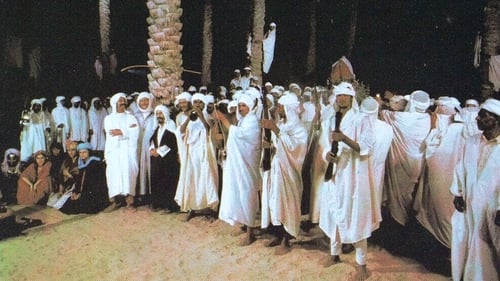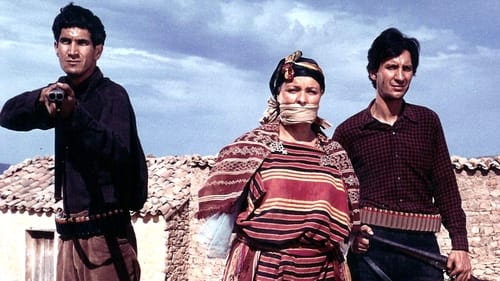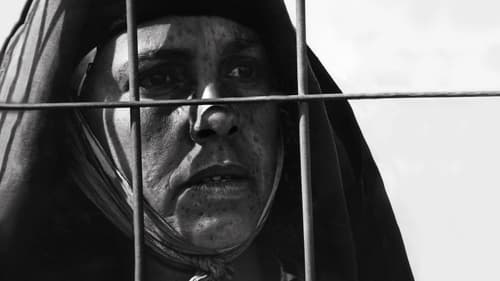Mohamed Chouikh
Birth : 1943-11-03, Mostaganem, Algéria

Writer
At a dangerous time in Algeria, 'Douar de Femmes' is a story of ordinary women who manage to defend themselves in extraordinary situations. The film focuses on a small village that has been attacked more often by terrorists from the surrounding mountains. While the men work, the women learn how to handle machine guns and explore the area. “Fear has armed us,” says the young woman Sabrina. But despite that fear, people get married, children come and keep watch.

Director
At a dangerous time in Algeria, 'Douar de Femmes' is a story of ordinary women who manage to defend themselves in extraordinary situations. The film focuses on a small village that has been attacked more often by terrorists from the surrounding mountains. While the men work, the women learn how to handle machine guns and explore the area. “Fear has armed us,” says the young woman Sabrina. But despite that fear, people get married, children come and keep watch.

Youssef, a director in his fifties, is preparing a film and goes scouting in the south of Tunisia. He travels the region, records images, meets a beautiful shepherdess during his stay in a mysterious village, before getting lost in the night.

Writer
The Desert Ark (L'Arche du Desert), a variation on Romeo and Juliet set in the Algerian desert. A young couple must face inevitable conflict when their rival families discover their secret love. Taking refuge in a cave, they listen to the sounds of a senseless campaign of violence and murder, which is the culmination of the extremism that has long divided their two communities. Nominated for the Golden Leopard at the 1997 Locarno Film Festival.

Director
The Desert Ark (L'Arche du Desert), a variation on Romeo and Juliet set in the Algerian desert. A young couple must face inevitable conflict when their rival families discover their secret love. Taking refuge in a cave, they listen to the sounds of a senseless campaign of violence and murder, which is the culmination of the extremism that has long divided their two communities. Nominated for the Golden Leopard at the 1997 Locarno Film Festival.

Director
Directed by Mohamed Chouikh.

Writer
In a small village in rural Algeria, the "village idiot" is madly in love with a married woman. His voyeurism and antics bring shame on his father, who guarantees that his son will be married that same day, or his four wives will be repudiated.

Director
In a small village in rural Algeria, the "village idiot" is madly in love with a married woman. His voyeurism and antics bring shame on his father, who guarantees that his son will be married that same day, or his four wives will be repudiated.

First Assistant Director
Seen right through the sandstorms that rack the lives of a tribe living on a desert oasis, is a subtle and not-so-subtle mistreatment of the female members of the tribe - tribal chiefs have the right to be the first to deflower virgins, and single or widowed mothers must walk a narrow line of behavior restrictions that do not apply to their male counterparts. Both genders, however, fight the brunt of the harsh desert winds together.

Writer
Directed by Mohamed Chouikh.

Director
Directed by Mohamed Chouikh.

Directed by Sid Ali Mazif.

Narrator
A documentary about algerian immigration in France

Arezki
Elise (Marie-Josee Nat) is a young provincial woman working in a factory in Paris. Her revolutionary brother secured the position for her, and she falls in love with an Algerian native who works with her. She becomes painfully aware of the prejudice he experiences from the police and his superiors. The recent conflict between France and Algeria only compounds the problems of Algerians in France. Her love and concern for the man causes her to search for him after he disappears one day. Elise considers moving to Algeria to find the man she loves in this bitter social drama.

Ali
Partly influenced by the Western genre, the film tells the story of a small group of mountainous bandits (escapees of the prison) who fight, in their own way, against the absurdity of the colonialist powers' presence.

Lakhdar
This black-and-white film – the first road movie of Algerian cinema – presents one of the most readily apparent, though subtle, transformations of the daily life of the people of Algeria brought about by the ordeal of French occupation and the war of liberation. With military repression in full force, a peasant woman finds herself alone in her house in the mountains when her only son is taken away by French soldiers soon after her husband is killed in a raid. One day, on seeing a dead chicken, which she considers a bad omen, she decides to leave home, and sets off on a tiring journey through the mountains. With a pair of chickens in tow, she moves from one detention camp to the next in a desperate search for her missing son. The film was inspired by events experienced by the family of its director.

This excellent feature-length documentary - the story of the imperialist colonization of Africa - is a film about death. Its most shocking sequences derive from the captured French film archives in Algeria containing - unbelievably - masses of French-shot documentary footage of their tortures, massacres and executions of Algerians. The real death of children, passers-by, resistance fighters, one after the other, becomes unbearable. Rather than be blatant propaganda, the film convinces entirely by its visual evidence, constituting an object lesson for revolutionary cinema.











